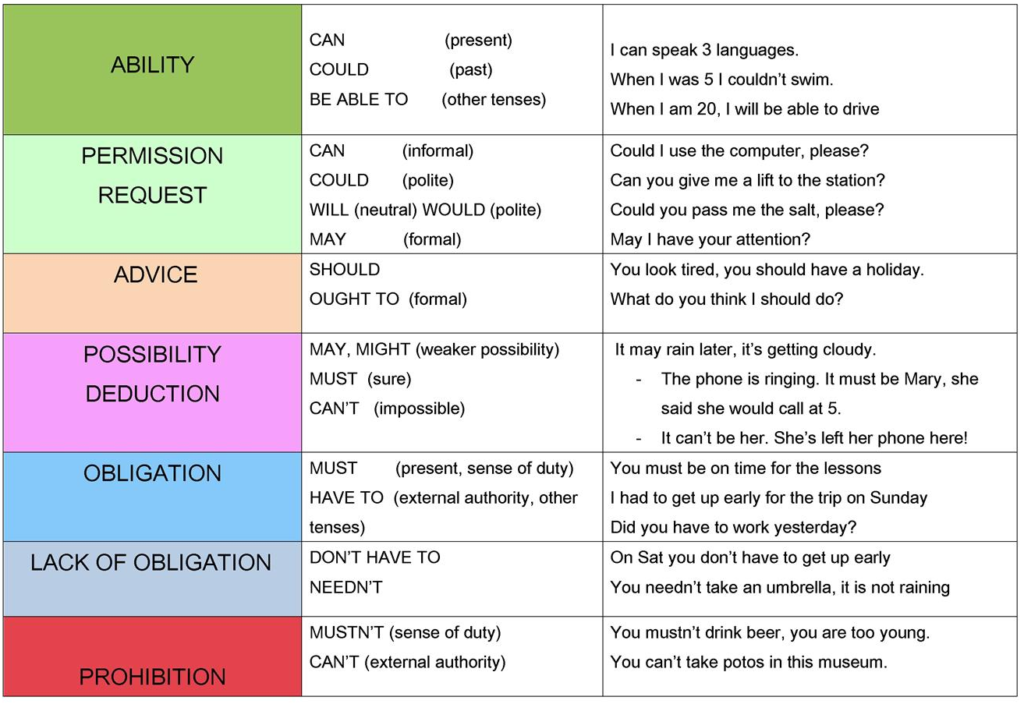Modal verbs help other verbs to express if something is likely to happen, or certain to have happened; whether or not something is possible, or whether or not we have the ability to do something; whether or not we have the permission to do something; and whether or not we have the obligation or requirement or need to do something.
All the auxiliary verbs except be, do and have are called modals. But unlike other auxiliary verbs, modals only exist in their helping form; they cannot act alone as the main verb in a sentence.
Thus they do not change their form (spelling) and have no infinitive or participle (past/present).
Notice that be, do, and have can also serve as ordinary verbs in a given sentence.
The modal verbs are: can, could, will, would, shall, should, must, ought, may, might. Below is a list showing them according to the idea meant to be expressed:

Now watch carefully this video and take notes.
Next click here for a quiz on modal verbs.
Modals verbs are an extensive area of English grammar. Learners are usually introduced to them all at once, and they should certainly start checking each one, but most of all, they should notice the context, to feel which modal is necessary to express the idea. A lot of times, there will be more than one possibility. Don’t worry! This comes with time, exposure, practice and consistent correction. 😉
